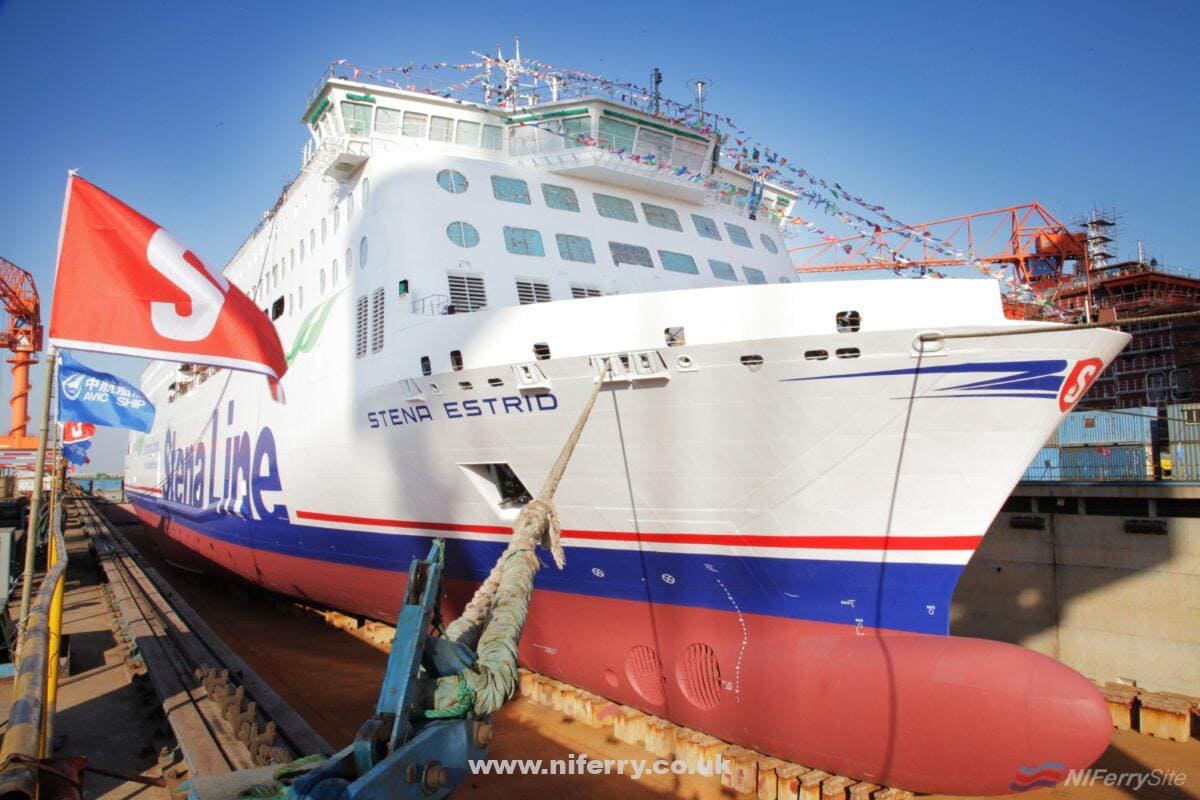The first of Stena Line’s three new Irish Sea vessels was floated out of the building dock at AVIC Weihai in China yesterday. Named STENA ESTRID*, the new ‘E-Flexer’ ferry is expected to enter service on-time on the Dublin to Holyhead route in early 2020.
Stena Line CEO Niclas Mårtensson said: “Today the first of our new generation vessels achieved a very important milestone for Stena Line. The Stena Estrid successfully completed her ‘float out’ manoeuvre from dry dock at the Avic Shipyard and now enters a busy phase of works ahead of her Irish Sea launch early next year.”

“Stena Estrid will bring many benefits to ferry users including speedy and efficient loading/unloading operations plus further development of our Scandinavian inspired facilities including our restful and bespoke Hygge Lounge and the latest upgrade of our premium product, the Stena Plus concept. The new ships will be spacious, light and make use of panoramic views. This is a very exciting time for our business and I’m proud that as Europe’s largest ferry company, Stena Line continues help shape the industry for the next generation of freight and leisure customers,” concluded Niclas Martensson.
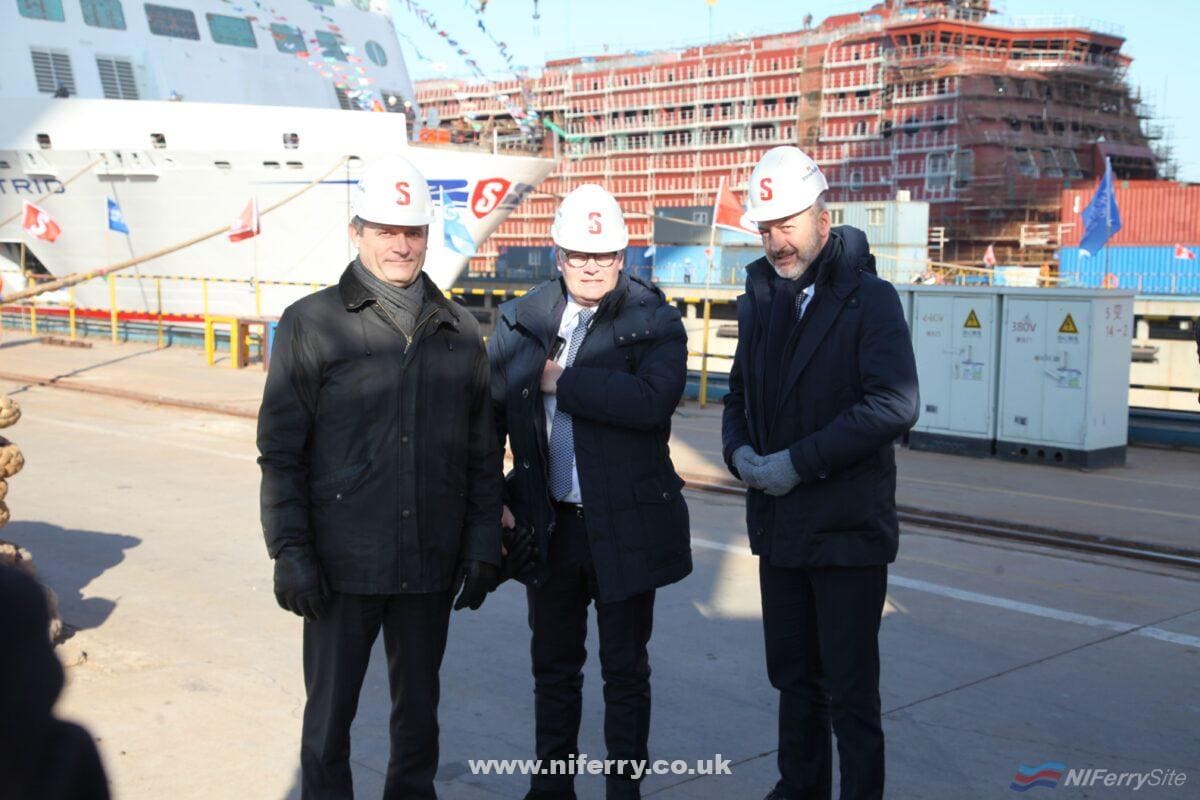
STENA ESTRID is the first of five vessels on order for Stena Line and eight for the wider group of Stena companies. Sister company Stena RoRo is overseeing the E-Flexer project and will charter out two of the ferries to Brittany Ferries and one to DFDS. The first three vessels for Stena Line will all go to Irish Sea routes. STENA ESTRID will join the Dublin to Holyhead route in early 2020 as mentioned above, while two further as-yet unnamed vessels will replace STENA LAGAN and STENA MERSEY on the Belfast to Birkenhead route in 2020 and 2021. The first of the two vessels for Belfast is already well under construction while steel cutting has already started for the second. The other two Stena Line vessels are built to an extended E-Flexer design and will join an as-yet-unannounced Stena Line route in 2022.

All three vessels that are being built for the Irish Sea will be larger than today’s standard Ro-Pax vessels at 215 meters long with a freight capacity of 3,100 lane meters and the space to carry 120 cars and 1,000 passengers. The extended vessels will be 240 meters long with a total freight capacity of 3,600 lane meters, and passenger capacity of 1,200
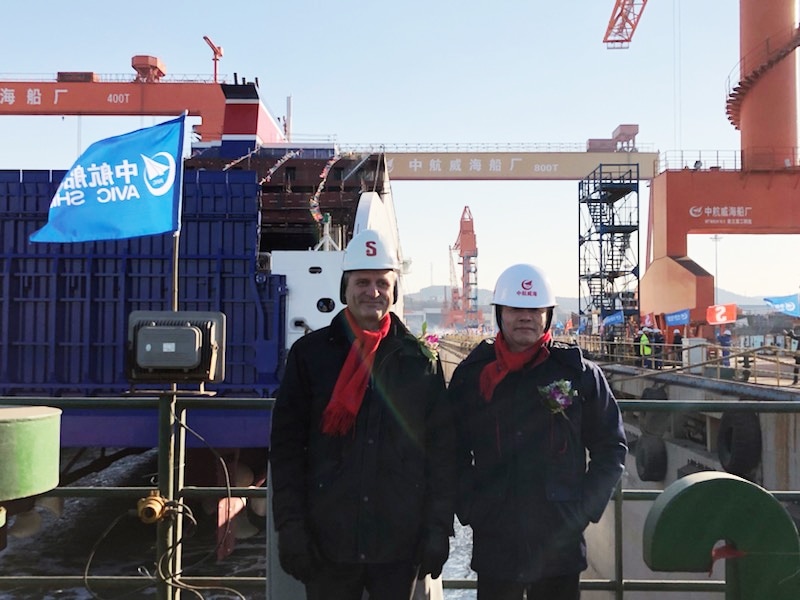
As well as the floating ceremony for STENA ESTRID, yesterday was also the date of the keel laying of the third ship in the series which is the first unit for Brittany Ferries. Scheduled for delivery in 2020 she is being built to a modified version of the standard E-Flexer design.
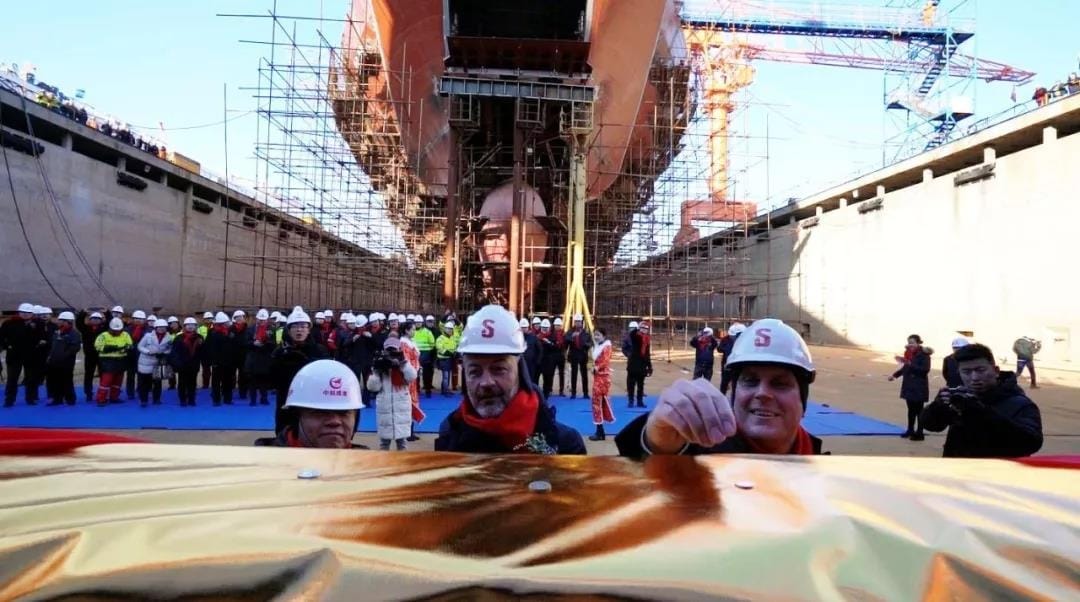
Specifications of the E-Flexer order:
- Stena Line (running between Holyhead and Dublin at the start of 2020)
- Stena Line (running between Belfast and Liverpool during 2020)
- Brittany Ferries (10-year charter contract for traffic between Portsmouth in the UK and Bilbao and Santander in Spain)
- Stena Line (running between Belfast and Liverpool during 2021)
- DFDS (10-year charter contract for traffic across the English Channel)
- Brittany Ferries running on LNG (10-year charter contract for traffic between Portsmouth in the UK and Bilbao and Santander in Spain)
- Stena Line (larger design, delivery in 2022)
- Stena Line (larger design, delivery in 2022)

Stena E-Flexer facts
- Length: 214.5 m
- Depth: 6.4 m
- Beam: 27.8 m
- Capacity: 3,100 lane metres + 120 cars, 1,000 passengers (including crew), 175 cabins
E-Flexer facts (larger design)
- Length: 239.7 m
- Depth: 6.4 m
- Beam: 27.8 m
- Capacity: 3,600 lane metres + 200 cars, 1,200 passengers (including crew), 263 cabins
*Stena Estrid is connected to Stena Line’s Scandinavian heritage and Estrid is an Old Norse eastern-nordic version of the name Astrid. Estrid is commonly found on old runestones and meaning divinely beautiful.
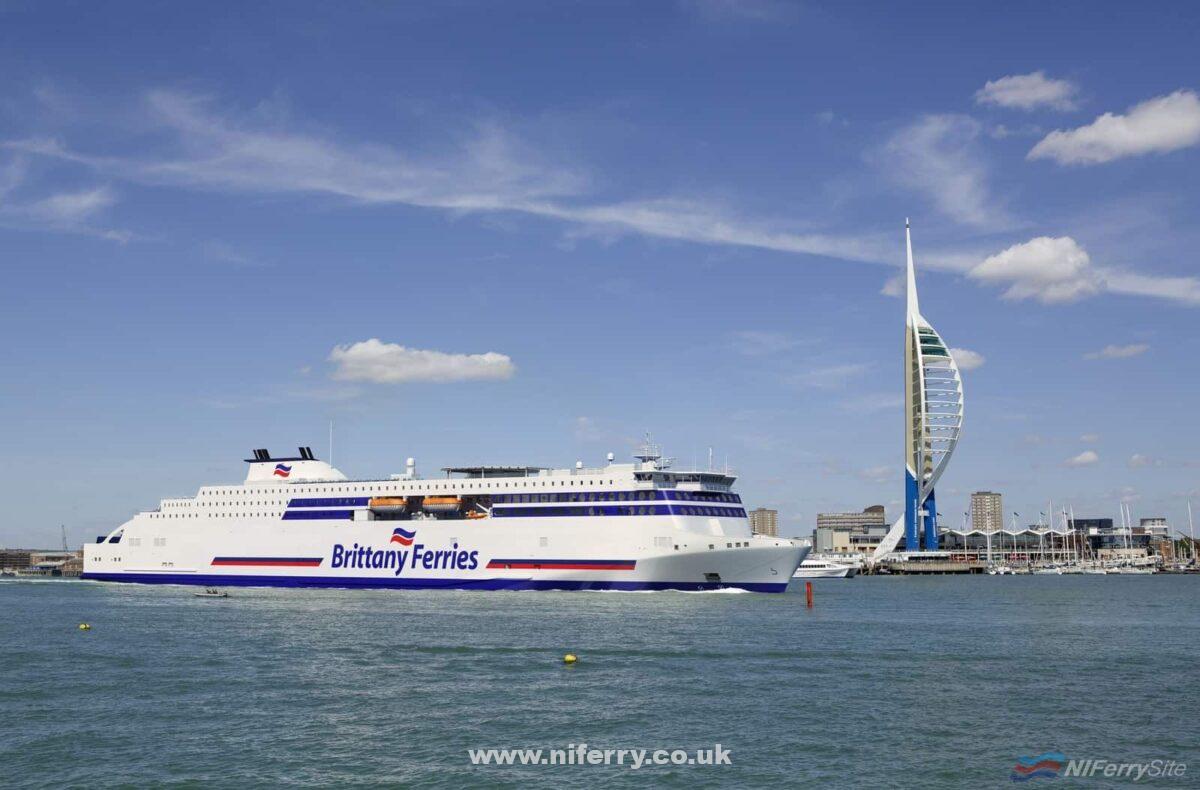
Stena Line Press Release: http://duffyrafferty.com/stena-lines-first-new-generation-ferry-floats-in-china/
